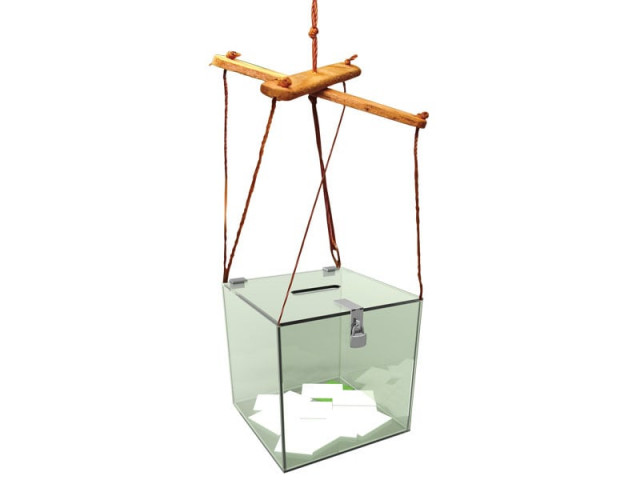Party organisation: ‘Party leaders selected, not elected’
Coalition politics more about access to state patronage than policy, says study.

Though general elections are coming up, most major political parties don’t hold internal elections at all or hold a thinly-disguised “selection process” dominated by the entrenched party leadership, according to a report launched here on Wednesday.
Political Parties in Pakistan Organisations and Power Structure was launched by the Lahore University of Management Sciences in collaboration with The Asia Foundation under a programme funded by the UK Department for International Development and the Netherlands Embassy.
Coalition politics is less about the meeting of minds on political and ideological grounds and more about access to state patronage, says the report. It says parties operate in a “legal grey area” on issues related to party finances and elections.
The report includes findings on 24 political parties in four categories: mainstream, ethnic and regional, religious and workers. The Pakistan Peoples Party, the Pakistan Muslim League-Nawaz and the PML-Quaid, and the Pakistan Tehreek-i-Insaf are identified as mainstream parties. The Muttahida Qaumi Movement, the Awami National Party and the Balochistan National Party are among 12 ethnic and regional parties. The Labour Party Pakistan and the Workers Party Pakistan (now merged with the Awami Party to form the Awami Workers Party) are the only two labour parties studied in the report. The Jamaat-i-Islami, the Sunni Tehreek and the Christian Progressive Movement are among six religious parties studied in the report from May to October 2012.
The report finds that in the absence of policy orientation in political parties, the founding chairpersons are related to for party identification. It also identifies a lack of “meaningful” intra-party elections. It highlights the absence of public funding of political parties, stating that most funding comes from private donations and membership and ticket application fees. Near general elections, the report states, some party members “donate” money to “buy” entry into the electoral process.
The report is critical of the formation of women’s wings in parties, saying this marginalises women. It also points out that most women are included in parties either as a reward for the political activities of their male family members or as proxies for male relatives excluded from the electoral process.
It also finds that the media has had a negative effect on the public perception of political parties. It accuses television channels of spreading disillusionment amidst the rift between the judiciary and the executive.
Professor Mohammad Waseem of the Mushtaq Ahmed Gurmani School of Humanities and Social Sciences at LUMS, who compiled the report, said that it aimed to build systematic knowledge of political parties. “In our research, we have tried to locate where power resides within a party,” he said.
About the PPP and PML-N, Prof Waseem said despite having a nationwide presence, neither had an organisational structure comparable to the JI and MQM. He said that during his research, he had encountered much criticism of political parties for failing to conduct internal elections. He said that the fact that most funding of political parties was private resulted in much speculation about the funding coming from overseas. He said television talk shows held an adversarial mode of discourse which often polarised the political debate rather than helped develop a consensus.
Gareth Aicken, the country representative of The Asia Foundation, said the audience for the report were the political parties. He said the report aimed to raise the standards of political debate in the country by providing political parties a resource that would help them engage people more effectively.
Published in The Express Tribune, November 15th, 2012.



















COMMENTS
Comments are moderated and generally will be posted if they are on-topic and not abusive.
For more information, please see our Comments FAQ